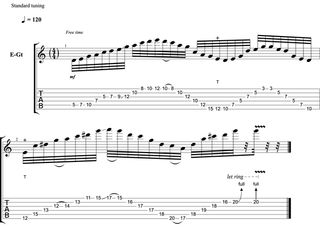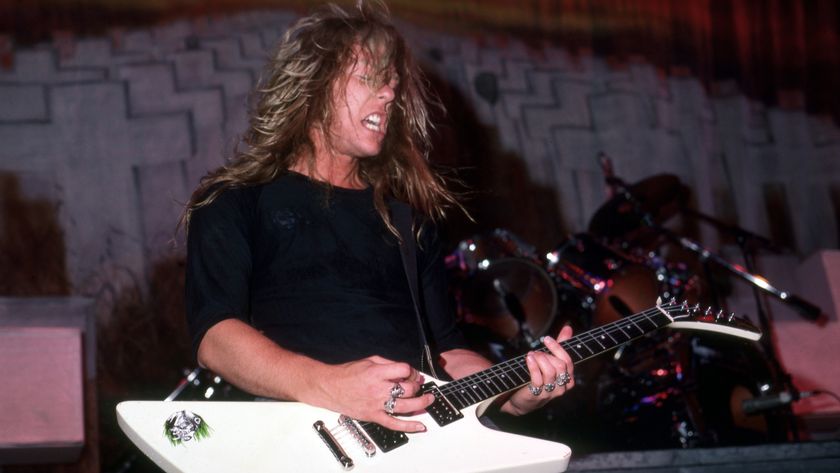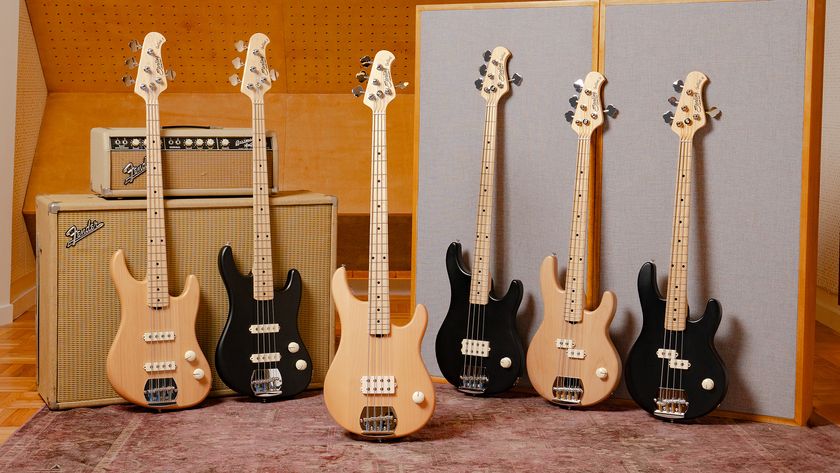Sick Licks: A Dark Mix of the Straight Pentatonic and Blues Scales

For this Sick Lick, I'm using the A minor pentatonic scale and the A minor blues scale.
I tend to find that the straight pentatonic gets forgotten about or is often substituted for the blues scale. Why? Because the blues scale sounds darker and more aggressive and is a common sound for rock and blues soloing.
Having said this, the straight pentatonic scale is totally killer when used in the right way. I tend to use the straight pentatonic for a lot of my big runs. I love the wide intervalic sound it creates, and it is very easy on the ear.
Big runs with modes just don’t sit right with me; I feel there are too many different tones happening for the ear to really catch on, and it just starts to sound way to jazzy rather than rock for me. This is why I love players like Eric Johnson and Shawn Lane; a majority of their runs are created using the straight pentatonic in some way shape or from.
This lick is broken into two sections, the first with straight pentatonic and the second with the blues scale (The first bar on the transcription is straight pentatonic, the second bar is the blues scale).
Although this lick is played at speed, you still can hear the significant difference between the two. A lot of players just think of these scales as the same thing, but they're not. It's like adding the flat 5 to a major triad and saying it's the same chord when clearly it isn’t. This happens because so much soloing or runs are played at such speed that to the novice they may not be able to pick up on the tonal difference, but it is very important that we as guitarists are aware and respectful of the two scales when soloing.
The Lick
Get The Pick Newsletter
All the latest guitar news, interviews, lessons, reviews, deals and more, direct to your inbox!
I start this lick on the fifth fret of the A string. I'm creating three-string arpeggios to move up the neck. As you can see from the transcription, the first arpeggio starts on the A string then the next on the G string. From here I play a six-string arpeggio starting on the high E and ending on the low E.
From there I create the pivot note marked "T" on the transcript. This is the note I fret with my left thumb to swing my left hand over the top and play two 6-string arpeggios, it is the same shape simply played back and forth. Obviously this section is very difficult, but just have some fun with it!
The next bar starts with another note marked "T." This is, once again, the note I fret with my left thumb to swing my hand back to the traditional position. From here the lick is using the A minor blues scale. The first two arpeggios are three-string, then I move into a six-string arpeggio and finish with a five-string arpeggio leading into a bend. The techniques are the same as in the first bar, but obviously the fingerings are different as I am adding the flat 5 to the scale.
I hope you enjoy! Please join me on YouTube here.

Australia's Glenn Proudfoot has played and toured with major signed bands and artists in Europe and Australia, including progressive rockers Prazsky Vyber. Glenn released his first instrumental solo album, Lick Em, in 2010. It is available on iTunes and at glennproudfoot.com. Glenn was featured in the October 2010 issue of Guitar World and now creates "Betcha Can’t Play This" segments and lessons for GW. Glenn also has a monthly GW column, "Loud & Proud," which offers insight into his style and approach to the guitar. Glenn is working on a project with Ezekiel Ox (ex Mammal) and Lucius Borich (Cog), which is managed by Ted Gardner, ex-Tool and Jane's Addiction manager. The band has done pre-production on 22 tracks and is set to hit the studio and finish their first studio album. The album is set for release in 2012. Glenn also is working on the followup to his debut album; it, too, will be released in 2012.













